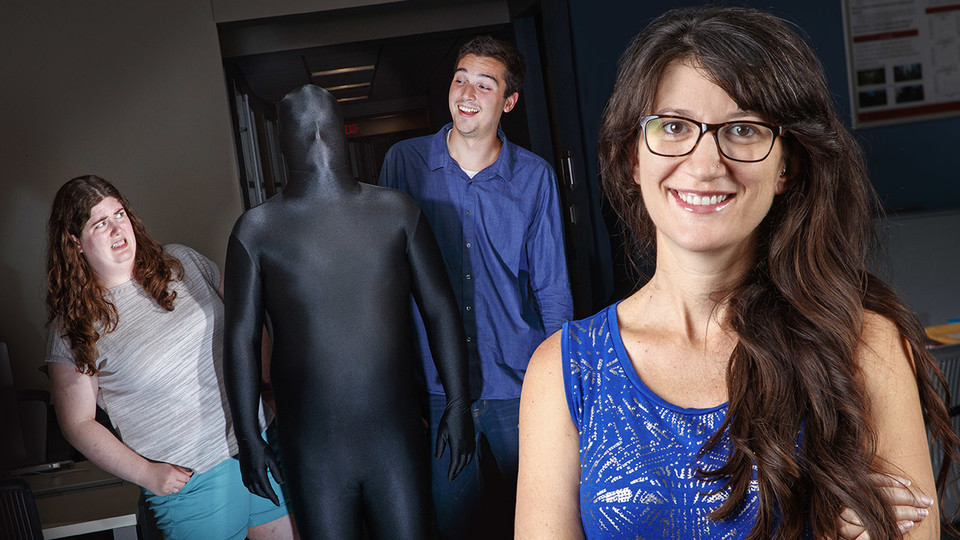Jeff Wilkerson, July 3, 2018 | View original publication
Project explores why aging brains stay on the sunny side
Even as your knees get creakier and your brain takes a few extra beats to put a name to a face, chances are you’re putting an increasingly positive spin on life.
University of Nebraska–Lincoln psychologist Maital Neta aims to find out why people interpret ambiguous everyday events — are they whispering about me? — more favorably as they get older. Her research could one day help inform treatment options for depression, anxiety and similar maladies.
Neta has earned a $756,611 Faculty Early Career Development Program award from the National Science Foundation to study how the brain’s wiring changes to view uncertainty more positively as we age.
“As an older adult, you’re much less likely to walk into a room and think, ‘Oh, these people are laughing at me,'” said Neta, assistant professor of psychology. “If we can understand how older adults naturally progress toward positivity, then it could give us ideas of how we can help people suffering from chronic negativity.”
To study how the brain responds to uncertainty, Neta and her team show people who are undergoing functional MRI scans several images of faces with surprised expressions. Surprise is one of few facial expressions that could indicate a positive or negative event.
Studies have shown that some people naturally assume the best in surprised faces: perhaps they just received a delightful, unexpected gift. Some believe the worst: say, an imminent collision with a bus. Most people shift between the two.
In the brain, interpreting the meaning of a surprised facial expression resembles how it processes other ambiguous events, Neta said.
“There are lots of different explanations for things that we encounter in our daily lives,” she said, such as whispering, winks and vague comments. “People tend to approach and interpret these signals in very different ways.”
As people age, they become more motivated to enjoy life and savor the relationships they have, she added. Young people, on the other hand, are motivated to experience novelty, which doesn’t always go well, so they may be wired to err on the side of caution and view situations more negatively.
The CAREER award will allow Neta to further understand positivity in aging. It’s part of her overall research to explore individual differences in emotional processing.
She is also preparing a Sunday with a Scientist event for children at the University of Nebraska State Museum. She will use the Pixar movie “Inside Out” to educate kids about how the brain processes emotion. The movie relied on the latest advances in neuroscience and psychology to tell the story of a child guided by her individual emotions as she confronts a cross-country move.
Neta is affiliated with the Center for Brain, Biology and Behavior.
“It’s a wonderful facility,” she said. “It’s also a wonderfully collaborative environment. I get lots of feedback and get to work with a lot of people with different perspectives in different departments.”
The NSF grant, known as a CAREER award, supports pre-tenure faculty who exemplify the role of teacher-scholars through outstanding research, excellent education and the integration of education and research.






